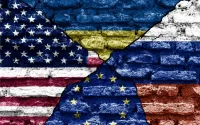Published on Thursday, December 30, 2004 by the Miami HeraldSaul Landau
Former Chilean dictator Augusto Pinochet is finally being brought to justice. This represents a victory not only for Chilean civil society but for international law. It also reopens the possibility of prosecuting Pinochet for a 1976 murder in Washington.
On Sept. 21, 1976, Orlando Letelier and Ronni Moffitt died in a car bombing on Washington's Embassy Row. Letelier, exiled in Washington, had served as defense minister under the deposed government of democratically elected President Salvador Allende. Moffitt was his colleague at the Institute for Policy Studies, a think tank where they both worked.
The FBI traced the plot to the highest offices of the Chilean government and indicted the two top officials of its intelligence and secret police agencies. But Pinochet's name was dramatically absent from the indictment despite the fact that two FBI special agents and U.S. prosecutor Lawrence Barcella all stated publicly that it was ''inconceivable'' that Letelier could have been targeted without Pinochet's authorization.
Successive attorneys general, reflecting presidential political proclivities, have not placed Pinochet's name on the still-open Letelier-Moffitt murder indictment.
Before leaving the post of president, after he lost in a 1988 referendum, Pinochet granted himself amnesty, made himself senator for life and then used this protected status to systematically evade the clutches of the law in Chile and abroad.
Documented evidence
In 1996, however, a Spanish court indicted Pinochet for crimes against humanity, genocide and international terrorism. The civilian government that replaced Pinochet appointed a commission to investigate the depth of repression under his rule. The Rettig Commission reported in the mid-1990s that Pinochet's secret police and armed forces had assassinated or ''disappeared'' 3,197 people. Tens of thousands were tortured and more forced into exile. Despite this documented evidence of wrongdoing, the Chilean courts and civilian government were afraid to act.
In 1998, a Spanish judge petitioned British authorities to detain Pinochet -- who had traveled to London -- on those charges and, after more than a year of appeals, the House of Lords upheld a part of the Spanish indictment.
Pinochet was let go after a team of doctors found him physically and mentally unfit to stand trial. Skeptics, however, stated their belief that Pinochet was faking.
Judge Juan Guzmán, who was appointed to investigate several cases of disappeared people, watched Pinochet on television in a 2002 interview he gave to a Miami station and found him coherent. Guzmán subsequently interviewed the 89-year-old former dictator and declared him fit for trial.
On Dec. 13, he indicted Pinochet for 10 specific acts of kidnapping and murder. Thanks to a small group of Spanish lawyers and judges, and to Guzmán, international law resurfaced.
Guzmán's indictment makes a firm statement about international terrorism. Now it's Washington's turn.
Letelier's murder and the crimes charged by Guzmán arose from Operation Condor, a secret network of intelligence and secret police agencies throughout South America that, for a decade or more, assassinated political opponents throughout the world. Pinochet helped found this organization, and Chile was its home. This makes Pinochet one of the world's leading terrorists.
An unsigned indictment of Pinochet for his authorship of the Letelier murder sits on the desk of the U.S. attorney in Washington. Political murder on the streets is not acceptable in Santiago. Nor should it be acceptable in Washington. The U.S. attorney should indict Pinochet now.
Saul Landau is director of Cal Poly Pomona University's Digital Media Programs and International Outreach and a fellow of the Institute for Policy Studies.






